Minneapolis and UK Policing #4: NYE Vindicated
by TIM HICKS
~~~~~
Incidents involving police officers being investigated for use of choke holds after being filmed on the increase
There have now been three incidents involving alleged excessive use of force by police officers being filmed and leading to an investigation. They are as follows:
1) Arrest in Brighton by officers of Sussex Police in which it is alleged a neck restraint was used.
This video surfaced of a man being arrested in Brighton by officers of Sussex Police on the 7th of July: Video here – which allegedly shows three officers acting in joint enterprise restraining a man, with one officer apparently applying restraint to a man’s neck.

Police officers restraining a man in Brighton
This has caused outrage and the incident has been referred to the Independent Office for Police Conduct (IOPC). Excellent article from the Brighton and Hove News containing a full statement by Sussex Police can be read here.
I commented in the article on it that “The fact that the incident has been instantly referred to the IOPC, would tend to confirm my opinion above that use of a chokehold is now unjustifiable in the UK”. I went on to state that the video clip only covers a part of the incident and that I had been unable to ascertain enough information to comment meaningfully, so did not comment further.
I will report back in due course when the outcome of the IOPC investigation is known.
2) Arrest of a man in York, where it has been alleged that officers of North Yorkshire Police used excessive force
A video of the incident can be viewed below:
Video of arrest in York
Chief Constable Winward of North Yorkshire Police kindly forwarded a media statement to me concerning this incident:
“Officers dealt with an incident in York city centre when a man was being abusive to members of the public. Officers initially attempted to disperse him from the area under a dispersal order, which had been put in place to assist with any reports of disorder on 4 July. The incident escalated and he was subsequently arrested. He has since been charged with assaulting a police officer and obstructing a police officer. He is due to appear in court on Monday 6 July.
We are aware of a video circulating on social media which captures only a few seconds of the incident.
It may be alarming to members of the public who have witnessed the use of force during the incident or seen the social media video, however we must reassure the public that the incident will be reviewed using the officer’s body worn video footage to ensure the use of force was proportionate and in line with training.
What the short clip does not show, is the full incident that the officers were dealing with. Importantly officers were wearing body-worn video which captures the preceding five minutes leading up to the man’s arrest. As the man has been charged with offences, we cannot go into more detail at this time.”
I have written to Chief Constable Winward thanking her for her help with the article and asking for an update on this case. I will publish her response in due course when it is received.
3) Arrest of a man by officers of the Metropolitan Police in which it is alleged that excessive force was used
In the latest incident, two constables from the Metropolitan Police arrested a man in the street in Islington, North London.
The man was handcuffed and on the ground with one officer kneeling on him. A crowd gathered and started filming the arrest while pleading with the constable not to apply pressure to the man’s head.
BBC Report here. It is a good article, which brings out many of the themes I have raised. It quotes an eye witness as saying:
“I was worried he was going to get executed. That’s just how George Floyd got killed. If not for the crowds filming the police they could have suffocated him or broken his neck. He was on the floor and in handcuffs, what’s the reason for a kneeling on his neck?”
The Deputy Commissioner of the Metropolitan Police Sir Steve House is quoted in the article as saying:
“The video footage that I have seen today and is circulating on social media is extremely disturbing. Some of the techniques used cause me great concern – they are not taught in police training.”
Video which contains graphic images that some readers may find disturbing can be seen here.
One Police Officer has been suspended from duty and another has been removed from operational duty. The incident was immediately referred to the Independent Office for Police Conduct (IOPC).
A forty five year old man was subsequently charged with possession of a knife in a public place. According to this BBC article here, the accused’s solicitor has stated that:
- The events shown in the video “mirrored almost identically what happened to George Floyd” and that the use of force was excessive.
- The arrested man had the knife for the lawful purpose of repairing his bicycle.
- The reason he was stopped and searched had nothing to do with the charge of possessing a knife that was subsequently brought against him.
- The Metropolitan Police should apologise for the treatment he received.
Coincidentally, police in Belgium are investigating the death of a man after social media footage showed he was knelt on by a police officer. BBC report here.
NYE vindicated in its concerns and comments.
The NYE has been running a series of articles on the impact of the death of Mr George Floyd in Minneapolis will have on policing in the UK.
- Minneapolis and North Yorkshire #1 covers the impact of the death of Mr George Floyd in Minneapolis on policing in North Yorkshire.
- Minneapolis and North Yorkshire #2 Covers UK national and North Yorkshire Police policy on chokeholds
- Minneapolis and North Yorkshire #3 and Public filming York incident (which is a correction to article 3) cover public filming of the police, particularly when filming alleged police misconduct and the incident in York referred to above.
The articles cover use of choke holds by the police and the impact the events in Minneapolis will have on policing in the UK, in terms of application of use of force and public filming of the police. There are a number of themes running through them, which have been vindicated by subsequent events:
1) UK Police policy from the College of Policing effectively prohibits use of chokeholds, unless there is an absolutely realistic prospect of loss of human life. The College of Policing had confirmed to the NYE that:
“Regarding your query about choke holds, the national personal safety training for officers in England and Wales does not contain any choke holds or restraint technique where officers apply pressure to the throat or neck area of a person. Officers are actively discouraged from this, due to the inherent dangers of putting pressure on the neck or throat, particularly during restraint.”
North Yorkshire Police also confirmed that:
“North Yorkshire Police do not train our officers and staff in the use of ‘chokeholds’ as part of Officer Safety Training. It is not an approved technique.”
I was very happy to report this, because I believed “it meant that the events leading to the death of Mr Floyd could not happen in the UK, where choke holds – and in particular neck restraints – could not normally be applied”. I believed this information will be reassuring to the public. I was therefore shocked to see the video clips from Brighton and Islington.
I was also pleased to read that Sir Steve House had reiterated that the techniques used are unacceptable and contrary to College of Policing Authorised Professional Practice, as stated in the NYE articles.
2) In Minneapolis, a brave and principled young lady acting as a citizen journalist filmed a police officer killing Mr George Floyd and uploaded the footage. This led to reform of US police practice by banning chokeholds unless there was a risk to life. Effectively forcing the US Police to adopt the UK
The NYE articles argued that as a result of the death of Mr Floyd, people in the UK would be more likely to intervene in these situations by filming police officers they believe are using excessive force and then to upload the footage onto the internet as a way of exposing police misconduct and forcing change.
There have now been two cases where UK police officers have been filmed allegedly using neck restraints in the last two weeks. Prior to Minneapolis there were none. In another first, the NYE was contacted about a police officer in York who was filmed punching a man who was being restrained by two other officers. This has never happened before. These three video clips have had extensive coverage on the internet and social media, confirming that the existence of mobile ‘phone technology and the internet.
This perfectly confirms the view stated in the articles that as a result of Minneapolis, the police in the UK will now be filmed more often when they are about their duties and particularly if members of the public have concerns about their conduct. This will potentially expose police misconduct and hold the police officers concerned to account for it.
3) Sir Steven House’s comments above support the view expressed in the NYE articles that following the death of Mr Floyd and given the above guidance, it would be impossible for a police officer in the UK to justify using a choke hold, unless it was clear that here was a very real overt threat to life. On the two recent occasions choke holds are alleged to have been used in the UK, the officers were immediately referred to the IOPC. Indicating that use of this technique is now unacceptable to both the police service and the public.
It remains to be seen what action – if any – is taken against the officers concerned in the Islington, York and Brighton incidents and particularly, if criminal charges are preferred against them.
4) The articles also raised the concern that as a result of this increased observation of the police leading to disciplinary action against police officers; it is likely that some police officers will retaliate against people filming them in public. In the Islington video, the constable that was allegedly applying the neck restraint told the crowd that was calling for restraint to shut up and to get back. Then got up and confronted the crowd, leaving the prisoner in the custody of the other officer, demonstrating that the level of restraint he was using was unnecessary. He then started moving the crowd back, even though they had not attempted to prevent the arrest or interfere in it, were only filming, and calling for restraint by the two officers, whilst also trying to calm the arrested man down.
5) The articles raise a very real concern that as a result of the above factors and the terrorism threat, the police will have to deal with public filming more often, but there is no national police guidance to police officers on filming the police in public. This is a major failing and will inevitably result in police officers having inadequate guidance on how to respond to it. Further, most police forces have no policy on filming of the police by the public even though these issues are now much more relevant to policing everywhere.
An exception is the Metropolitan Police. Because the Met covers the capital, which has a greater representation of journalists and photographers and is also a tourism centre, Metropolitan Police Officers come into contact with public filming issues more often. Hence the reason it has a policy on police powers and photography which can be read here.
In the Islington incident, the officer started trying to disperse the crowd that was filming him, thereby preventing filming. It is unclear if he was trying to disperse the crowd to prevent them filming him committing a serious act of misconduct, or because he was concerned that the crowd may attempt to free the prisoner, or both. The Metropolitan Police policy states: “Members of the public and the media do not need a permit to film or photograph in public places and police have no power to stop them filming or photographing incidents or police personnel”. This is in my view inadequate, because it does not cover the situation in Islington. Specifically it does not give any guidance on when a police officer can order a crowd that is filming him to move back and to what distance, if he is concerned that they are likely to free a prisoner.
The inevitable consequence of this is that police officers will find themselves the subject of media criticism and allegations of misconduct more often, because of lack of adequate guidance.
How often are the UK police using illegal choke holds?
Following the death of Mr Floyd, both the College of Policing and Chief Constable Winward of North Yorkshire Police confirmed that the technique that caused the death of Mr Floyd could not be used in the UK. I found this to be reassuring and reported positively to this effect in the articles.
The thing that then shocked me is that two videos of police officers allegedly using neck restraints emerged almost immediately afterwards.
But the really shocking aspect of this is the response of the other three police officers (two in Brighton and one in Islington) that were observing their colleague applying an unauthorised and dangerous restraint technique. Following the events in Minneapolis, they must have known this could have caused the death of the prisoner. Their duty was clear. It was to restrain their colleague. Yet, as in Minneapolis, none of them did anything to bring their colleague – who was allegedly applying the neck restraint – under control, thus forcing a member of the public to intervene.
All five officers in the videos were completely brazen about what they were doing and appeared completely unconcerned that they were being filmed while allegedly committing serious acts of misconduct which were life threatening.
I have concluded that this is because they may have been commonly applying choke holds on an everyday basis and had no concern that this act of misconduct would lead to any consequences for them.
If this is so, then it is in the public interest that the public acting as citizen journalists are now filming the police when they are about their duties. The possibility that police officers who abuse their positions by using choke holds will be filmed and exposed, will hopefully deter the police from using them. Thereby saving lives and preventing police officers from being charged with misconduct, criminal assault, manslaughter or murder etc.
The impact for the NYE
It is very encouraging for me as a crime journalist that the NYE’s coverage of this issue has subsequently been vindicated by events and the comments of a Chief Police Officer.
This must give our readers – both police and members of the public – confidence that the NYE is bringing its readers accurate and incisive comment on the major issues of the day.

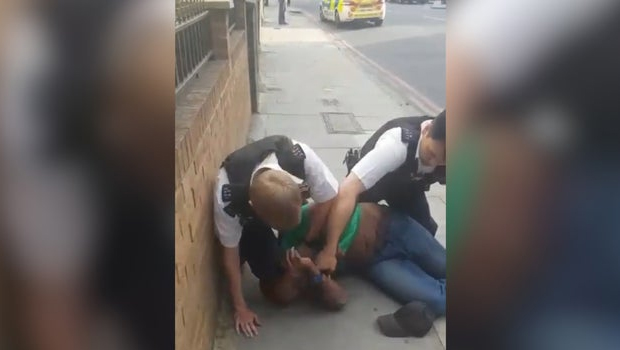
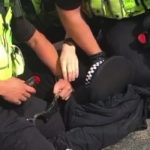
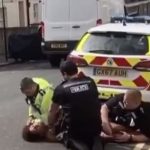
![Minneapolis and North Yorkshire [REDUX]](http://nyenquirer.uk/wp-content/uploads/2020/07/ARREST-150x150.jpg)


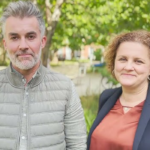
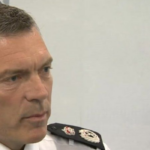


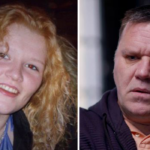















Comments are closed.